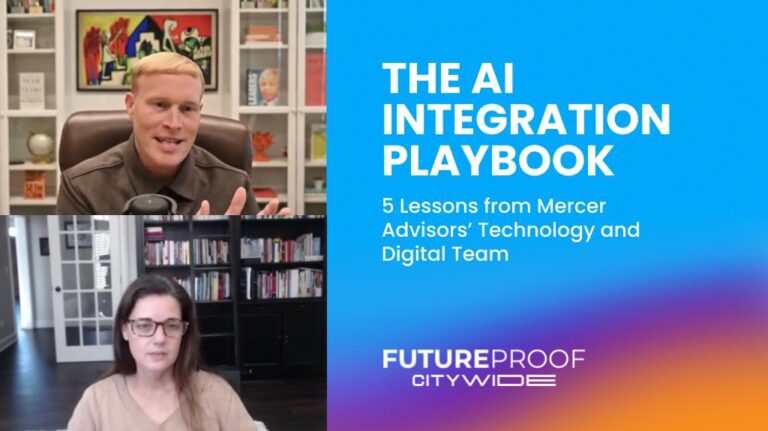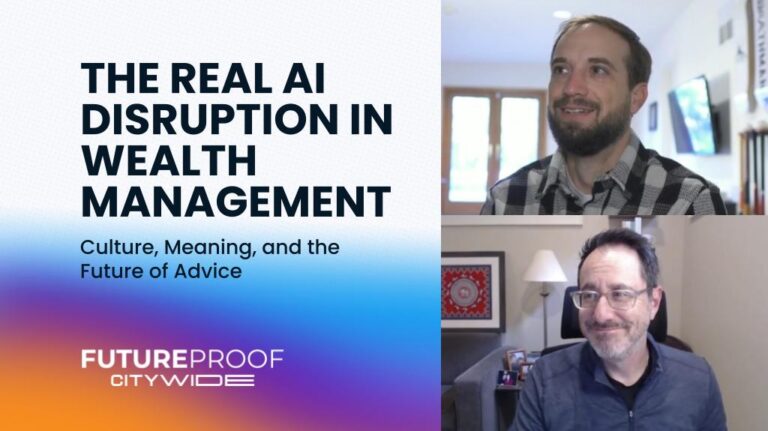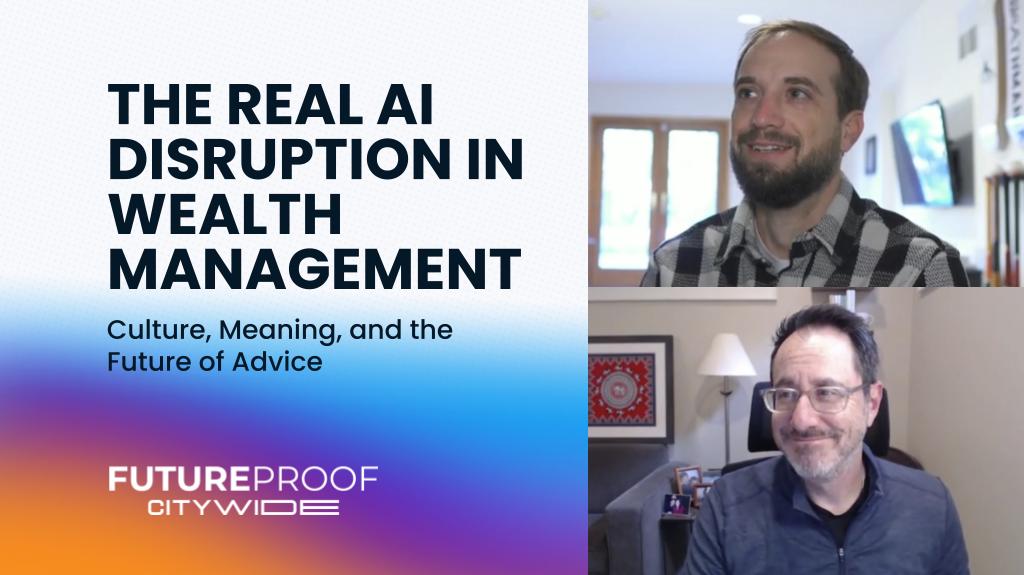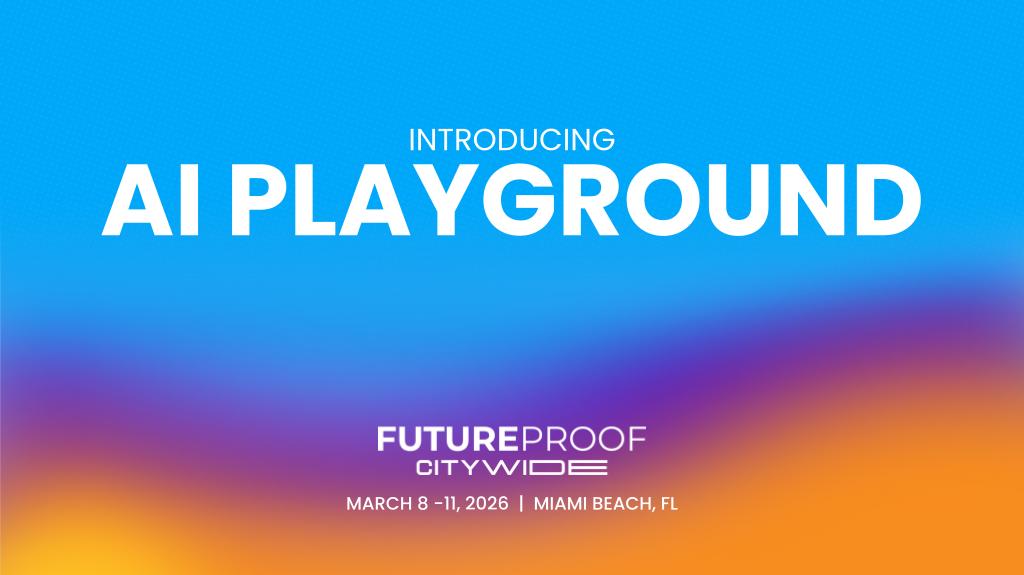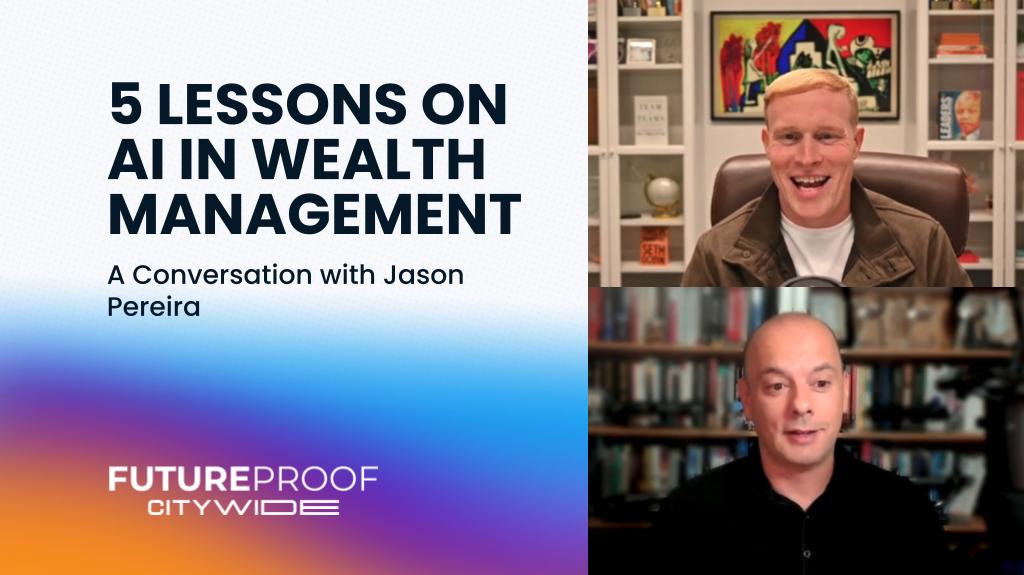The wealth management industry is at a crossroads. Firms are under pressure to modernize, integrate AI, and operate with the efficiency of technology companies, all while maintaining trust, compliance, and a deeply personal client experience. It’s a complex balance that will determine which firms can scale AI effectively and which will be left behind.
Among the firms tackling that challenge head-on is Mercer Advisors. As one of the largest RIA and Multi-Family Office firms in the country, Mercer employs 1,400+ team members and manages more than $90 billion in client assets across 100+ regional offices.
At the center of its transformation is Christine Cataldo, Mercer’s Chief Technology and Digital Officer. With more than 25 years in financial services and senior leadership experience at firms including Edelman Financial Engines, Christine leads Mercer’s technology strategy, digital transformation and platform innovation.
Mercer’s approach offers a roadmap for firms wondering how to integrate responsibly. It’s a framework that blends structure with experimentation, and it’s worth studying closely.
Here’s what I took away as the five lessons of Mercer’s AI Integration Playbook.
Lesson 1: Start with Strategy, Not Shiny Objects
Christine began our conversation by emphasizing that Mercer hasn’t changed its technology strategy, it’s evolved it. The same two- and five-year strategic plans remain in place; AI simply becomes an added layer across every objective.
Whether the firm is looking to drive revenue, reduce costs, or deepen insights, AI isn’t treated as a standalone project. It’s evaluated as part of every technology decision.
“I think people can get lost if they go shopping for it and trying to test all of these things without really understanding the problem statement,” Christine told me. “If they go try this latest product out there but they don’t have a problem that they’re trying to solve, they’re going to spend a lot of time and a lot of money.”
That mindset has kept Mercer grounded. The firm built its own in-house platform, one system where all advisor workflows and client data live, and it applies AI on top of that foundation.
For many smaller firms, Christine said, the best move is to start small with existing integrations. But the principle is the same: align AI with strategy.
Lesson 2: Centralize Your Data Foundation
Most firms in wealth management are still struggling with unstructured or siloed data. Mercer took a different path years ago. Its proprietary platform gives the firm an enormous advantage: a single source of truth for client data, workflows, and analytics.
This centralization matters because AI is only as effective as the data it touches.
That means Mercer can train and deploy AI directly on its own platform, ensuring data privacy, consistency, and control. It’s a model other enterprise firms can learn from, invest in the foundation first, and innovation becomes infinitely easier later.
Lesson 3: Educate Through Experience
Christine described something more firms should be doing, learning by doing. Mercer is rolling out education and experimentation side by side, from company-wide access to Microsoft Copilot to team-level hackathons where employees build real solutions to real problems.
In one of those hackathons, the product and development teams were given a single day to test AI tools on specific business challenges. By the end of the day, a project that had been stalled for months was solved and ready for testing. That sprint produced a data reconciliation tool now moving into production, and sparked dozens of new ideas for the roadmap.
This approach combines creativity with practicality. Mercer’s enablement team works with business units to tailor training based on need, teaching some teams how to prompt effectively in Excel or Teams, and helping others build small AI “assistants” alongside the tech group.
The takeaway is simple: don’t teach AI as theory. Create space for experimentation, and let people learn by solving problems they already care about.
Lesson 4: Govern Before You Grow
Before Mercer launched its first AI pilot, it established a firmwide AI policy that every employee had to sign. That document outlines exactly how AI can and cannot be used, from data security to third-party tools.
“We welcome all the ideas. We’ve got a number of different committees and then we figure out how to test it securely,” Christine said, “Any of the LLMs have to be enterprise versions. They can’t put any corporate information into a personal ChatGPT. They know that that’s the policy.”
This policy-first approach helps to build guardrails, not gates, to earn credibility and confidence and keep innovation flowing safely.
Her teams track every AI tool in use, partner with business units on compliance checks, and require that all AI-generated work, transcripts, reports, next-best-actions, is reviewed by a human before it becomes part of the record.
That human-in-the-loop model is a trust mechanism that helps to ensure AI augments judgment rather than replacing it.
Lesson 5: Keep Humans in the Loop, Always
AI is powerful, but Christine is clear-eyed about its limits. She encourages her teams to think of AI as a capable assistant, added support that expands what they can do. It can gather information faster, surface patterns they might miss, and streamline repetitive work. But at the end of the day, people remain the decision-makers.
Mercer’s approach reflects that balance. Employees are encouraged to experiment and build, but within a framework of enterprise-grade governance. Every tool is tracked, tested, and designed with accountability in mind.
The firm even treats AI agent creation as a collaborative skill, pairing non-technical business leaders with technologists to co-design practical solutions. Christine sees her team’s role as making sure every employee feels comfortable engaging with AI, regardless of skill level. Some employees prefer the technology team to build an agent for them and walk them through how it works. Others dive in on their own, experimenting and iterating alongside the tech group.
She emphasized the importance of meeting people where they are. Younger employees, often just a year or two into their careers, are already teaching peers new ways to use AI. More experienced team members may need a little extra guidance until they gain confidence.
That’s what a true learning organization looks like, one that evolves at the pace of technology without leaving anyone behind.
A Glimpse of the Future
Toward the end of our conversation, Christine reflected on where all of this is heading.
There will be areas, she believes, where human oversight eventually fades, processes like HR screening or data reconciliation, but in wealth management, trust remains paramount. Regulators will play a key role in defining where automation can safely replace human review.
What’s more interesting is how quickly client and employee attitudes are shifting. Mercer’s teams are already comfortable collaborating with AI systems daily. That trust, once established, will define the next generation of advisors, clients, and investors.
Why This Matters
The Mercer Advisors story captures what’s most exciting about this moment in our industry. AI is moving beyond theory into operation. But success depends on structure, governance, and education.
At Future Proof Citywide, March 8-11, in Miami Beach, FL, we’ll continue these conversations live, connecting leaders like Christine who are doing the real work of rethinking wealth management for the AI era.
If your firm is ready to move from AI exploration to execution, this is where you’ll find the blueprint, and the people building it. Register now.
Author
Matt Middleton
Founder & CEO, Future Proof
Matt Middleton is the founder and CEO of Future Proof, the company behind the world’s largest AI-native finance event, Future Proof Citywide. He leads the vision for building community-driven experiences that connect the most forward-thinking investors, advisors, technologists, and creators redefining financial services.
Disclaimer: This article was written by me … with the help of AI (ChatGPT 5 to be specific). If we’re building an event about how AI is transforming finance, we’d be hypocrites not to use it ourselves. At Future Proof, we’re testing and deploying AI at every stage of the business: from how we research and write, to how we design, plan, and deliver events. Consider this both an experiment and a preview of what’s to come.

